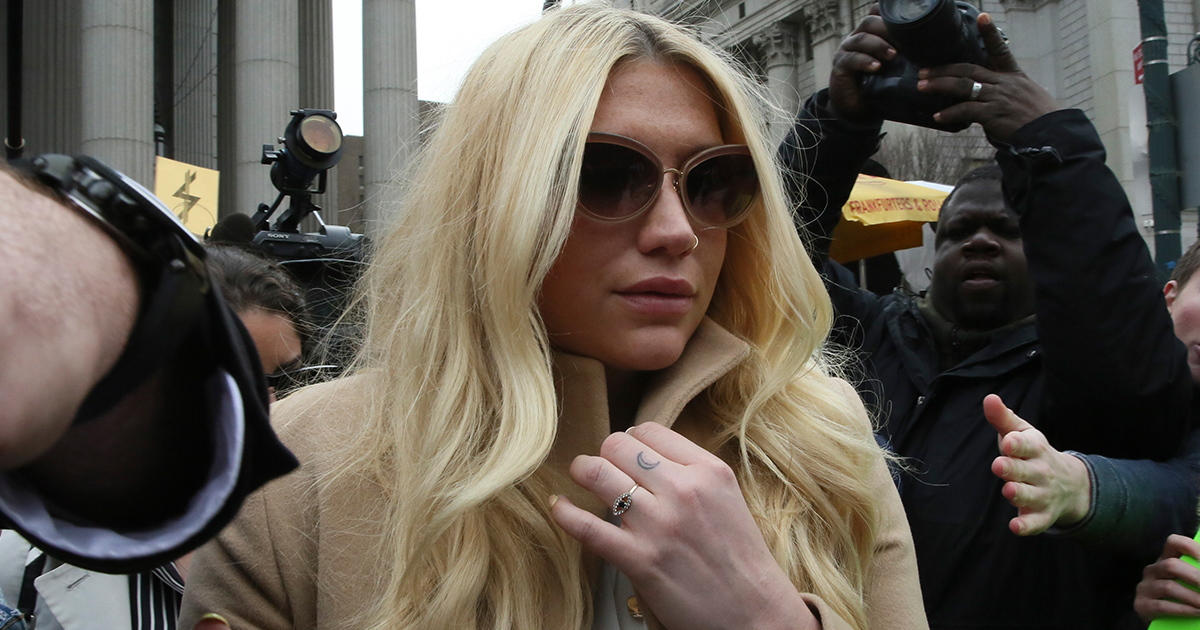What Kesha's Lawsuit Really Means
By:
Kesha’s lawsuit with producer Dr. Luke’s Kemosabe Records has been headline news for weeks now, but for industry experts, the February 19 ruling that Kesha cannot invalidate her contract is hardly surprising.
Kesha first filed the lawsuit against the company in October 2014, alleging that any contact with Dr. Luke would be life-threatening because of sexual abuse she experienced beginning in 2005, when she first signed the deal. To understand this, ATTN: spoke with several legal experts about why Kesha's case has been so controversial.
 AP/Mary Altaffer - apimages.com
AP/Mary Altaffer - apimages.com
Kesha’s allegations are damning, but this is hardly the first time powerful industry insiders have been accused of using their power to take advantage of women who are looking for a chance to make it in a notoriously competitive industry. In fact, for decades women have been pressured into keeping silent about the abuse they endure, and it’s only recently that public opinion has made room for a brave few to come forward. Kesha’ s recent court battle perfectly illustrates why. Sexual assault is incredibly difficult to prove, and for many survivors, reporting the abuse only serves to further harm them.
If Kesha’s allegations are true (and there’s a good chance they are — according to the National Sexual Violence Research Center only 2 to 10 percent of rape accusations are false) and she can prove it, Kesha may be able to invalidate the contract because it would mean that there is a frustration of the contract, which, according to Cheryl Ainsworth, a lawyer who works on several civil cases as a lawyer for Affeld Grivakes Zuker, LLP, means that, “one party to the contract has done something so out of bounds that it frustrates the purpose of the contract.” Rape would certainly rise to that level, but she would have to be able to prove that the assault happened and that, “Sony either tacitly or explicitly approved,” Ainsworth told ATTN:.
Kesha is hardly the first artist to attempt to get out of a major recording contract, but she’s not as well-established as those who have historically been successful.
Even Prince was only allowed out of his contract by technically providing the required recordings to his studio, Waner Brothers and George Michael of Wham! Ultimately lost his suit against Sony in 1994.
Tess Taylor, president of the National Association for Record Industry Professionals told ATTN: that, “recording contracts have been refined by top legal minds for decades so whenever a loophole is found, it’s plugged up for the next time.”
With a contract that solid, Kesha’s best option is probably to buy out the remaining time on her contract, but only she and Sony-owned Kemosabe records actually know exactly how much that will cost.
 Wikimedia/brittanyanyon - wikimedia.org
Wikimedia/brittanyanyon - wikimedia.org
We do know that it’s likely to be very expensive, according to Taylor, “the record industry does not let artists out of contracts easily, especially the major labels. If you don’t want the major labels’ power, money, and market force then you are free to develop your own career at your own risk or expense,” but very few artists find commercial success with the support of a big label, and considerably fewer manage it by working independently.
In fact, for every artist with Kesha’s level of commercial success, record labels put resources into hundreds more who never even break even on the label’s investment. “Artists like Kesha who actually make money and recoup end up paying for the many who don’t,” said Taylor, meaning that for Kemosabe and Sony, a contract like Kesha’s is an incredibly valuable asset that they cannot afford to lose.
